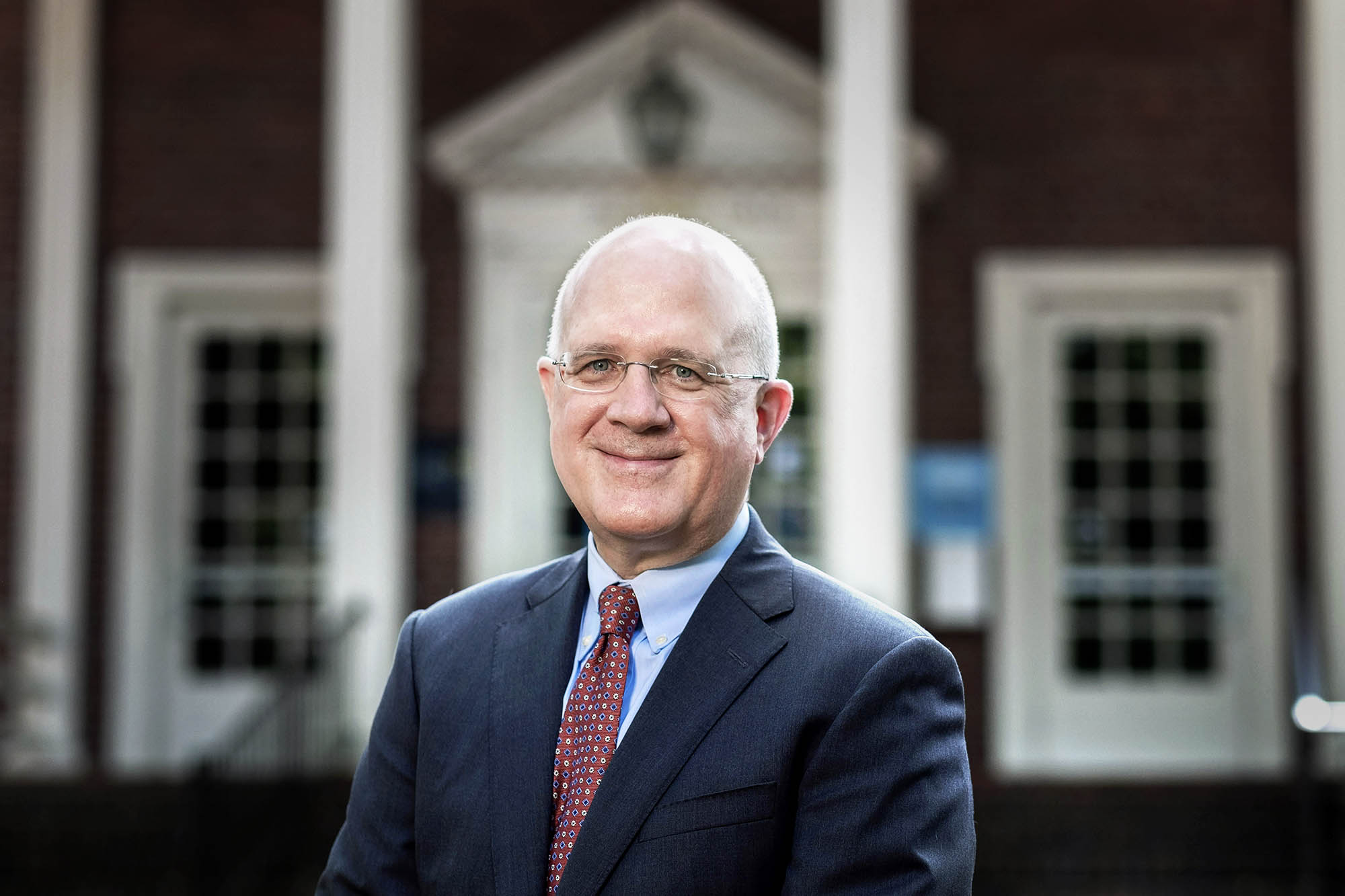This week, the College Board announced changes to the way it administers its standardized tests to university applicants in the United States. The board is dropping the optional essay component of the SAT as well as its subject tests in such fields as chemistry, French and literature.
The board explained it was making the changes to streamline the test-taking process amid the coronavirus pandemic, which it said “accelerated a process already underway at the College Board to reduce and simplify demands on students.”
Stephen Farmer, UVA’s first vice provost for enrollment, talked with UVA Today about what this means for students applying to the University, how standardized test scores fit in with UVA’s admissions process and his excitement at enrolling the Class of 2025, his first at the University.

Stephen Farmer, UVA’s first vice provost for enrollment, said the change gives the College Board a chance to concentrate on improving the SAT and other offerings, such as Advanced Placement tests. (Photo courtesy UNC Chapel Hill)
Q. What was your first reaction when you heard the College Board was dropping the essay and subject tests?
A. I wasn’t surprised. The number of students who have been taking subject tests or completing the optional essay has been dwindling over time.
The change gives the College Board a chance to concentrate on improving the SAT and other offerings, such as Advanced Placement, that are arguably more valuable to students.
I agree with the board that the change simplifies things for students. To the extent that students feel they’re already jumping through a lot of hoops, or to the extent they feel that there are too many hoops available to them and they don’t know which ones to jump through, simplifying the choices can be helpful.
Q. What do the SAT changes mean for students interested in UVA?
A. I think the changes will have probably a very limited practical effect on the way that students apply to Virginia. I do hope the changes will help students remember there are more ways to demonstrate their strengths than just earning strong test scores.
We want to care for every student who applies. We want to see the best in them and we want the best for them. Ideally, the way that we consider students should encourage them to do things that will be in their long-term best interest. We want students to do things that will make them smarter, more creative, more curious. We want students to do things that will keep them healthy. We want them to do things that will be meaningful for themselves and their families and their communities.
We want them to do things that will be worth their time and energy. We don’t want them pursuing credentials or completing tasks just because they believe that we want them to do those things. To the extent that not having to worry about subject tests or about the essay will give them more time to focus on things that really matter, I hope that will be helpful to them.
Q. Critics say the new moves will only place more emphasis on the College Board’s Advanced Placement tests that high school students must pay to take. They say the moves do not address concerns about equity in the testing process.
A. I think that one helpful development over the last several years where the Advanced Placement tests are concerned is that more districts and, in some cases, more states have been funding the exams. That’s removing the financial barrier for students and their families. And in states where that’s happened, participation in exam-taking has increased. I think there are things from a policy point of view that communities can do and that states can do to further level the playing field. I think that’s a good thing for young people. It’s a good thing for schools and teachers and communities.










